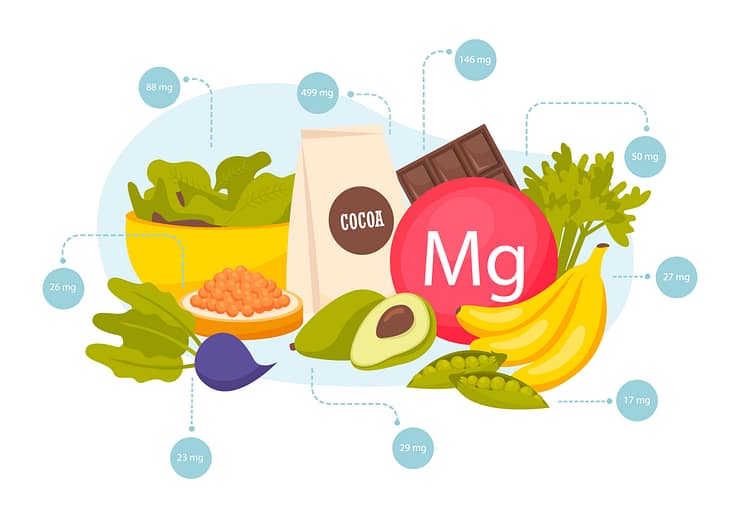How Can Food Choices Influence Migraine Headache Patterns?

Severe headaches are the hallmark of migraines, a crippling neurological disorder that is frequently accompanied by light and sound sensitivity, nausea, and vomiting. Numerous factors, such as genetics, environment, and lifestyle, are known to contribute to the occurrence of migraines, even if the actual etiology of these headaches is still unknown. Diet is one of the most important of these variables. This blog explores the relationship between diet and migraine patterns, providing information on typical triggers and dietary management techniques.
What Are Migraine Headache Patterns?

The frequency, length, and intensity of migraine attacks are referred by doctors for migraine treatment in Mumbai as migraine headache patterns. Individual differences in these patterns can be significant, and a wide range of factors, such as hormone fluctuations, stress, sleep patterns, and food choices, can all have an impact.
While some people only get headaches once a month, others have chronic migraines that happen several times a month. It is essential to comprehend one’s migraine patterns in order to effectively treat and prevent food-induced migraines.
Exploring The Connection Between Food and Migraines

The connection between food and migraines has received a lot of attention as people and doctors for migraine treatment in Mumbai work to pinpoint migraine trigger foods and pain management techniques. Exploring this relationship entails learning how specific foods might trigger food-induced migraines episodes and discovering eating patterns that can assist in controlling and even preventing these incapacitating headaches. Through an exploration of the science underlying food-related triggers and the application of well-informed dietary solutions, migraineurs can enhance their overall quality of life and regain greater control over their diet and migraine patterns.
Science Behind The Link Between Food and Migraines
Food and migraines have a complicated and multidimensional interaction. There are ingredients in some meals and drinks that, in sensitive people, might cause migraines. These triggers can cause blood vessels to dilate and contract, which releases neurotransmitters and inflammatory chemicals that exacerbate migraine discomfort.
Why particular foods cause migraines is explained by the hospital for TMS for migraine in Mumbai. One theory focuses on the function of tyramine, a naturally occurring substance that can influence blood vessel dilatation and constriction and is present in aged and fermented foods. The function of dietary additives like aspartame and monosodium glutamate (MSG), which can change brain chemistry and cause migraines, is the subject of another theory.
Common Food Triggers: Eating Habits Affecting Migraines
Although dietary factors for migraines might differ from person to person, the following eating habits affecting migraines are known to cause migraines in many people:
- Aged Cheeses: Tyramine levels are high in cheeses including Parmesan, blue cheese, and cheddar.
- Processed Meats: Nitrates and nitrites, which can cause migraines, are frequently found in deli meats, sausages, and hot dogs.
- Alcohol: Histamine and tyramine, two substances known to cause migraines, are present in red wine and other alcoholic beverages.
- Caffeine: Migraines can result from both abrupt and excessive caffeine withdrawal.
- Chocolate: Contains beta-phenylethylamine and caffeine, both of which have the potential to cause migraines.
- Artificial Sweeteners: For certain individuals, aspartame and other artificial sweeteners may cause migraines.
- Foods with MSG: MSG is a common migraine trigger found in restaurant dishes and processed foods.
How To Identify Foods That Trigger Your Migraines?

The first step in treating migraines is figuring out what foods cause them. Triggers frequently necessitate close observation and trial and error since they can be very personal.
Keeping a Food Diary
One useful technique for determining migraine triggers, suggested at the headache & migraine clinic in Mumbai, is a food diary. If you keep track of everything you eat and drink, as well as the date and circumstances of any migraine attacks, patterns may show up that identify particular foods or drinks as triggers.
Tips for Keeping a Food Diary:
- Keep track of all the meals, snacks, and drinks you have.
- Take note of the consumption time.
- Make a note of any migraine symptoms, along with their length, strength, and time of occurrence.
- Add other variables, such as stress levels, sleep quality, and physical activity, that may have an impact on migraines.
Elimination Diets
In order to track any changes in migraine patterns, an elimination diet entails cutting out potential trigger foods from your diet for a while before progressively adding them back one at a time.
Steps for an Elimination Diet:
- Identify Potential Triggers: Write down the things you should avoid based on your food journal.
- Eliminate Suspected Foods from Your Diet: For a minimum of two to four weeks, cut out these foods.
- Observe symptoms: Any changes in the frequency, length, and intensity of migraines should be noted in great detail.
- Gradually Reintroduce Foods: Take one meal at a time and reintroduce it into your diet, giving yourself a few days to notice any sensitivities in between.
Nutrition Strategies for Migraines Management

In addition to recognizing and avoiding triggers, certain dietary approaches recommended by the headache & migraine clinic in Mumbai can assist in managing migraines and may even lessen their frequency and intensity.
Hydration and Migraines
One common migraine trigger is dehydration. Maintaining proper hydration can both prevent and lessen migraines.
Practical Hydration & Dietary Tips For Migraine:
- Drink Regularly: Try to get in 8 to 10 glasses of water a day minimum.
- Water Bottle: Keep a water bottle on you and record the amount of fluid you consume.
- Minimize Drinks That Dehydrate: Limit your intake of alcoholic and caffeinated drinks, as they might cause dehydration.
- Consume Hydrating Foods: Increase your intake of fruits and vegetables that are high in water, such as oranges, cucumbers, and watermelons.
Balancing Blood Sugar Levels
Blood sugar fluctuations have the potential to cause headaches. Migraines can be avoided by maintaining stable blood sugar levels with well-balanced meals and snacks.
Practical Dietary Tips For Migraine For Balancing Blood Sugar:
- Eat Regularly: Try not to miss meals and have a small, well-balanced meal every three to four hours.
- Add Fiber and Protein: To slow down digestion and stabilize blood sugar levels, add fiber and protein to complex carbs.
- Steer Clear of Sugary Snacks: Restrict your intake of sugar-rich meals and beverages that can quickly raise and lower your blood sugar levels.
- Select Whole Foods: Give preference to fruits, vegetables, whole grains, lean meats, and healthy fats.
Magnesium-Rich Foods
Magnesium can help lessen migraine frequency and is essential for nerve function. It has been discovered that a large number of migraineurs have decreased magnesium levels.
Practical Tips for Increasing Magnesium Intake:
- Consume Foods High in Magnesium: Make sure your diet includes foods high in magnesium, such as legumes, whole grains, nuts, and seeds.
- Adding Supplements: After speaking with migraine doctors in Mumbai, if food consumption is inadequate, think about taking magnesium supplements.
- Keep an eye on your intake: Monitor your intake of magnesium to make sure you’re getting enough each day.
Riboflavin (Vitamin B2)
In certain people, riboflavin, commonly referred to as vitamin B2, has been exhibited to lessen migraine frequency and intensity.
Practical Tips for Increasing Riboflavin Intake:
- Eat Foods High in Riboflavin: Make sure your diet includes foods like dairy, eggs, lean meats, green vegetables, and fortified cereals.
- Consider supplementation: Riboflavin supplementation might be helpful if dietary sources are inadequate. See a doctor before beginning any new supplement regimen.
- Monitor Your Consumption: Make sure you’re receiving enough riboflavin by keeping an eye on your diet.
While migraines can be influenced by a variety of factors, dietary choices play a significant role in triggering and managing these headaches. By understanding common migraine trigger foods, keeping detailed records through a food diary, and implementing nutrition strategies for migraines such as maintaining hydration, balancing blood sugar levels, and ensuring adequate intake of magnesium and riboflavin, individuals can better manage their migraine patterns and potentially reduce the frequency and severity of attacks.
For a holistic approach to managing migraines, consider RNR Medicine, best hospital for TMS for migraine in Mumbai. Personalized plans curated by our migraine doctors in Mumbai focus on dietary adjustments, hydration, and essential nutrient intake to help reduce the frequency and severity of your migraines. Discover a path to relief and reclaim your life with RNR Treatment today.





